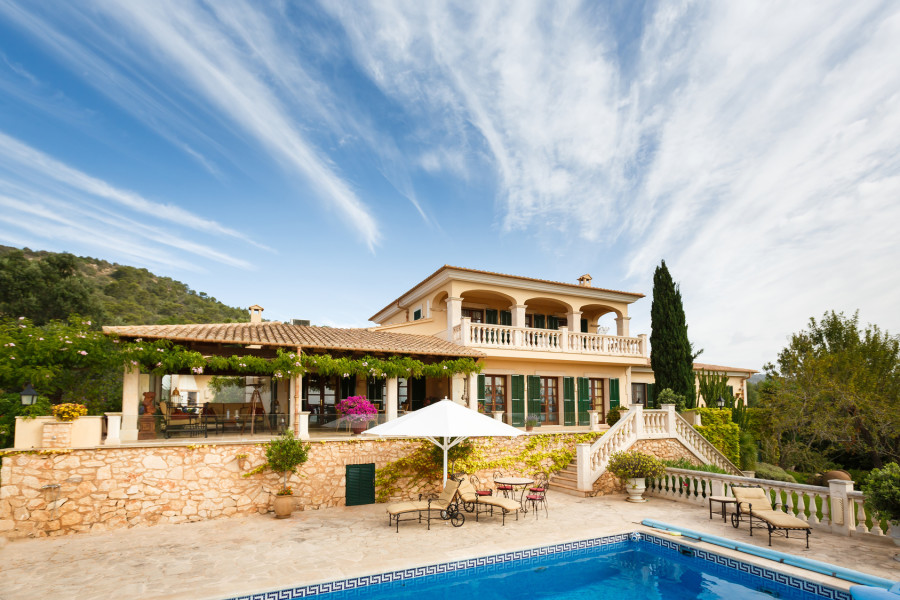
The cost of selling
Although costs will depend on your property and the local region in which it is located, a number of taxes and specialist expenses are associated with selling a property in Spain.
Capital gains tax
This is the tax on any appreciation in the value of your property while you have been the owner i.e. the difference between how much you bought it for and the price at which you are now selling.
This is the net amount, after deductions including all official expenses (with receipts) that relate to the initial purchase and current sale of the property. These could include refurbishing (but not maintenance), notary expenses, lawyer expenses and estate agency fees.
If you are a resident you will not pay capital gains tax if the property is your main home and you are spending the money on a new one (and both fit the necessary criteria e.g. being in the EU/EEA). This also covers non-residents in EU/EEU countries with a tax information exchange agreement with Spain.
Also, if you are over 65 years old and have lived in your property for more than 3 years then you will not have to pay capital gains tax.
In terms of capital gains tax rates, non-residents pay a flat rate of 19%. For residents the current rates are:
• 19% (€0-6,000)
• 21% (€6,000-50,000)
• 23% (€50,000+)
Here’s a rough guide to capital gains tax calculations - without any consideration of deductions, your circumstances or tax bracket - for a property bought for €150,000 ten years ago and sold today for €400,000:
Capital gains tax will be payable on (€400,000 - €150,000) = €250,000
• 19% (€0-6,000) (€6,000 x 0,19) = €1,140
• 21% (€6,000-50,000) (€44,000 x 0.21) = €9,240
• 23% (€50,000+) (€200,000 x 0.23) = €46,000
total = €56,380
Plusvalía tax
This is a tax on any increase in the value of the land on which your property sits. It will vary not based not only on the location, but also how long you have lived there and the cadastral value, which is determined by and paid to the local town hall (ayuntamiento). As seller you are liable for this, although the buyer will sometimes pay.
Local tax (IBI, Impuesto sobre Bienes Inmuebles)
This ongoing tax is calculated on the cadastral value of the land as set by the local town hall and depends on many factors. A simple rural property may only cost €100 per year while a higher value property in an exclusive neighbourhood could cost €2,000 or more. The owner is liable for the tax on 1 January each year, but it is possible for this to be shared by arrangement with the incoming owner.
Income tax provision (Retención)
If you are a non-resident, then you will have to pay a retención (income tax provision) of 3% of the purchase price. This goes directly to the tax office to cover any taxes resulting from the sale. However, you can claim a refund if your tax liability is less than 3%.
Mortgage status
Always check the status of any mortgage on the property and what is required to cancel it or transfer it to the new owner. There may be charges to the bank - normally a small percentage of the outstanding balance - and also to the Notary Public and Land Registry.
Energy Performance Certificate (EPC) (CEE, Certificado de la Eficiencia Energética)
The energy rating of your house must be summarised in a CEE as issued by an official certifier such as an architect or surveyor. The cost of this will depend on the property size. This document has to be included in all property details and printed or online advertising.
Occupancy Certificate (Cédula de habitabilidad)
This certificate proves that your property complies with basic standards of habitability and conforms to its role as a legal dwelling. Costs start from around €50 and depend on the size of your property.
Land Registry Tax
Every detail of your property is on record with the Land Registry, so any changes you have made to its boundaries, facilities or living space will have to be declared before or at the point of sale.
Professional services
A range of professional services can be called on to assist you in the selling process. A real estate agent is most likely to be the key player in finding you a buyer, and a lawyer (recommended in almost all cases and find one who speaks your language) is often retained to take care of the sale and ensure your best interests are being represented at all stages.
You can also be involved in the appointment of the neutral Notary Public to handle the property certification, although the buyer will pay for this. A translator may also add peace of mind in meetings and throughout the selling process.
